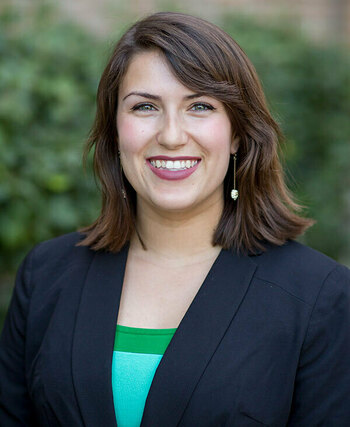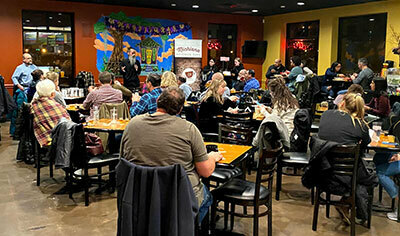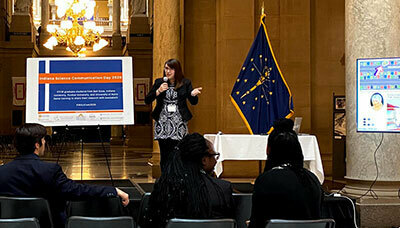
Morgan Widhalm Munsen knows that effective communication is key for scientific research to have real life implications.
So, in addition to conducting significant research of her own as a fourth-year Ph.D. student in the Department of Psychology, Munsen also pursues community-based projects that make science more accessible and understandable to the general public.
“It’s not like you can do research and then suddenly expect it to be meaningful to people,” Munsen said. “Which is why I think it’s so important for scientists and researchers to tell stories about their research and help to make it as relevant as possible to people.”
That mentality was evident over winter break when Munsen and Cara Ocobock, a Notre Dame assistant professor of anthropology, teamed up to deliver science in an engaging way to students in South Bend.
At St. Adalbert Catholic School, 1st through 8th graders received supplies and science kits with a lab manual designed by Ocobock. For each of the 28 experiments outlined by the manual, a profile of a diverse female scientist was also provided.
The project received both a community impact grant from the Center for Social Concerns as well as a grant focused on diversity and inclusion within science policy from the National Science Policy Network.
The kits served as both an at-home activity to do with family members and as a resource for teachers in the classroom or to aid in navigating the challenges of virtual education.
“It’s just this really great holistic kit to engage students in a way that’s hands-on and fun but also really meaningful in allowing them to identify as a scientist,” Munsen said. “It’s important not just for young girls but also for young boys to see that women can also be scientists.
“Notre Dame is so generous with grants for situations like this — and we have a responsibility as scientists and as humans to leave the world a better place and to utilize what resources we have to serve the community.”
“I’m driven by this desire to understand how the brain, a physical machine, allows us to be humans who do everything from making decisions to having memories to understanding each other and trying to love each other. Through understanding how our brain works, we can hopefully become better at being humans if we understand ourselves and others better.”
Pursuing truth
Munsen, who graduated from Notre Dame in 2017 with a bachelor's degree in neuroscience and behavior, focuses her doctoral work on cognitive neuroscience and has done research on both working memory and long-term memory.
Her current project with her advisor, assistant professor Joshua Koen, looks at interference in human memory, or how the human brain can make sense of and distinctly encode information or experiences that are very similar.

“I’m driven by this desire to understand how the brain, a physical machine, allows us to be humans who do everything from making decisions to having memories to understanding each other and trying to love each other,” Munsen said. “Through understanding how our brain works, we can hopefully become better at being humans if we understand ourselves and others better.”
Munsen is currently developing her dissertation proposal, which will examine how confirmation bias affects memory.
She plans to investigate how initial biases or prejudgements can affect the way one interprets and remembers subsequent information by looking at a court case scenario where an initial, biased description of a defendant is given before presenting participants with ambiguous facts of the case.
“My dissertation is part of my more general interest in how we approach and evaluate information, especially in the realm of discussion and trying to make sense of our own political or moral or ethical beliefs — because if we are immediately discounting certain information, we are not allowing ourselves to pursue the truth,” she said.
Pursuing policy
Munsen is also working toward the advanced quantitative social science graduate minor to enhance her technical skills.

“I’ve had so many great professors within the quantitative department that have an incredible ability to teach what can be a fairly intimidating subject,” Munsen said. “The minor enriches all the areas within cognition or developmental or clinical psychology. All of us benefit from that incredible technical knowledge base that we have.”
After Notre Dame, Munsen hopes to work in science policy or science communication. While she enjoys conducting research, Munsen is dedicated to providing a bridge between the world of academia and policy-making.
“It’s been so great to know that my advisor and the entire department supports my work in things like science policy and community engagement,” Munsen said. “It’s allowed me to really explore my interests and hopefully build up a good resume to pursue jobs related to policy.”


